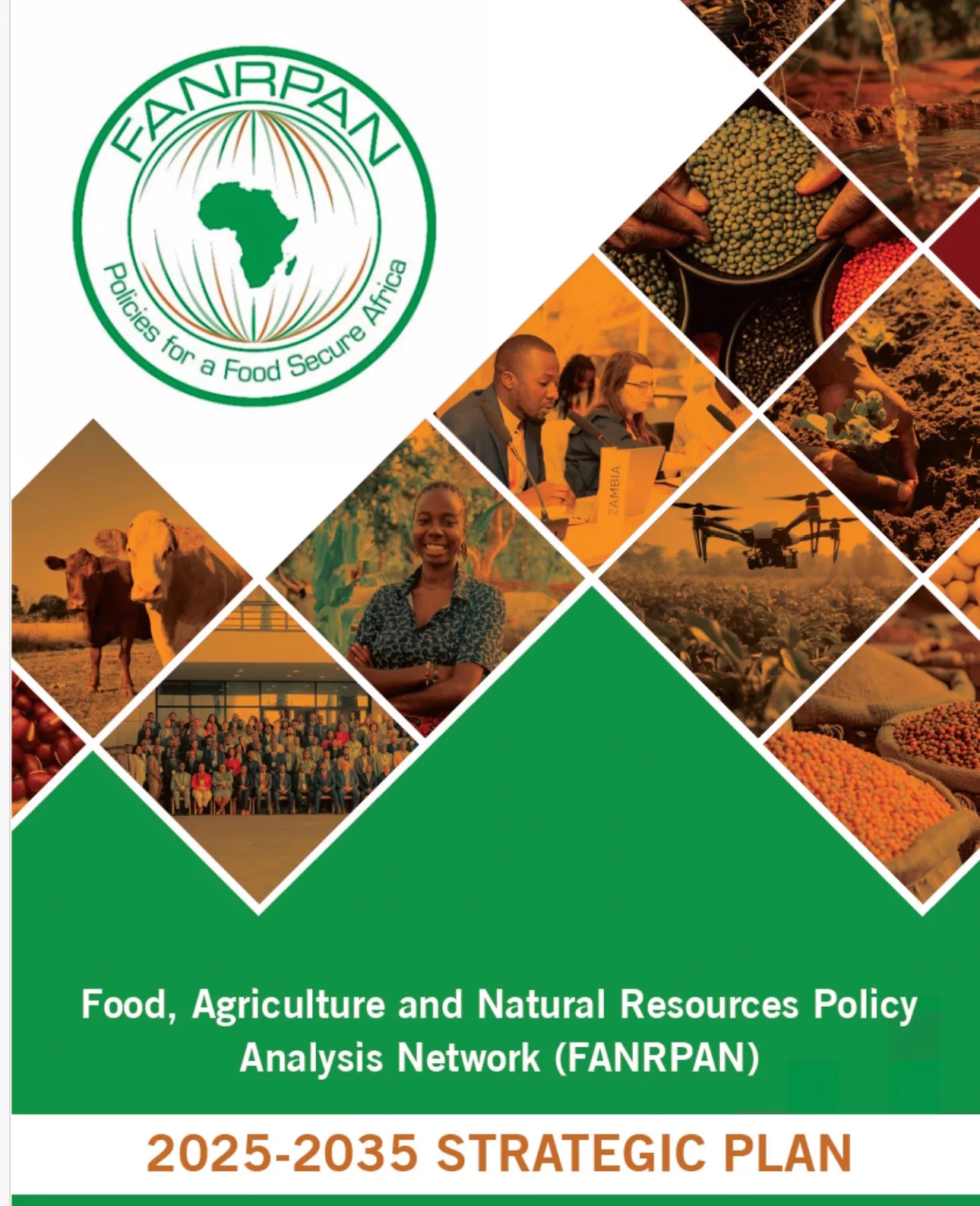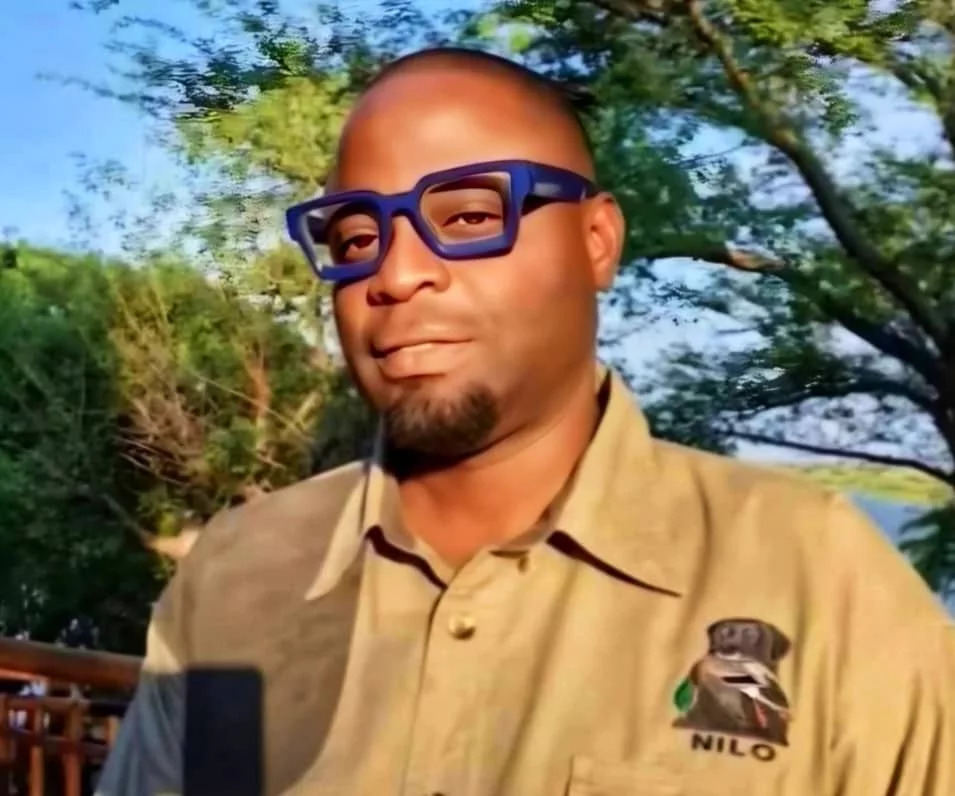|
Getting your Trinity Audio player ready...
|
The Food Agriculture and Natural Resources Policy Analysis Network (FANRPAN) Strategic Plan (2025-2035) lays out not only its strategic priorities – ranging from climate change resilience, nutrition, and sustainable livelihoods to trade, innovation, and social inclusion but also it shows how the network delivers through robust evidence generation, knowledge management, and partnerships.
These were the words of Ms Sithembile Mwamakamba, FANRPAN’s Director of Policy Research and Analysis during the launch of the strategic plan today, which she said would drive impact and be at the center of the network’s interaction with smallholder farmers, the policy actors, young entrepreneurs, women innovators, and all those working tirelessly to nourish the continent under increasingly complex and challenging conditions.
FANRPAN was established in response to a 1994 call by ministers of agriculture from Eastern and Southern Africa. In 1997, the network was formalized at a consultative meeting, which was then followed by its registration. In 2006, the FANRPAN regional secretariat was accredited with diplomatic status by the government of the Republic of South Africa.
“In terms of our mandate, we were established to coordinate policy research and dialogue and recommend strategies for promoting food, agriculture, and natural resources sectors in Africa. Since its inception, FANRPAN has been guided by three strategic plans, which have seen the network evolve from institutional strengthening to continental food systems. The period from 2002 to 2007 focused on building the network’s operational capacity, supporting central governments in policy analysis, and improving decision-making frameworks.
“Then when we moved to 2007 and 2015, this is when FANRPAN cemented its role as a leading African policy think tank with an expanded geographic scope beyond southern Africa to cover the whole of the continent. We have also engaged in several flagship initiatives, like the Harmonized Seed Security Protocol project that saw us supporting countries in domesticating the satellite seed systems regulations. We were also responsible for climate advocacy under the No Agriculture No Deal campaign at the Global Climate Change conferences, where we were able to draw together African voices to speak on a global stage on why Africa and agriculture must be at the center stage of the climate change negotiations,” Ms Mwamakamba said.
.
From 2016 to 2024, FANRPAN focused on resilience-building through evidence-based policies on climate change and nutrition. It responded to shocks like El Nino and COVID-19 and has also been supporting agricultural innovation and calling for enhanced climate adaptation efforts across the continent.
Moving on to the new phase (2025 to 2035), FANRPAN, in positioning itself to deliver on the new mandate, is guided by various development frameworks, which include the United Nations Agenda for Sustainable Development (SDGs) at a global level. Other policies and guiding frameworks at a global level such as the UNFCCC Paris Agreement, the Convention on Biological Diversity, and the UN Food Systems Summit also guide its work.
At the continental level, FANRPAN is guided by several African-integrated frameworks and strategies that promote sustainable agriculture,
climate resilience, digital innovation, and inclusive economic growth. The Agenda 2063 is the overarching one because it presents the Africa We Want. The Comprehensive Africa Agriculture Development Programme (CAADP), provides that foundational framework for driving agriculture and food systems transformation.
These commitments at a continental level provide a clear roadmap for stakeholders like FANRPAN to align efforts and drive impactful policy reforms across the continent. The 2025-2035 strategic plan outlines a renewed vision and strategic direction to respond to Africa’s evolving food systems challenges. It builds on lessons and achievements from the 2016-2024 strategy.
“This new roadmap that we now have reaffirms FANRPAN’s vision to promote an enabling policy environment for the transformation of agriculture and food systems across Africa. It is anchored in a compelling vision which is resilient African agriculture and food systems in harmony with nature delivering prosperity and health for all and a clear vision that promotes an enabling policy environment for transformation. Our objective is to enhance the evidence base for effective policy formulation, informed decision-making, and practical policy implementation,” she added.
In his remarks, Dr. Aggrey Agumya, the Chairperson of the FANRPAN Board of Governors said the 2025 to 2035 strategic plan was the result of a consultative process that harnessed the views and aspirations of the network’s multi-stakeholder base, including farmer organisations, policy research institutions, government departments of agriculture and natural resources, regional economic communities, the private sector, development partners, civil society organisations, women and youth, and the media.
“The strategy also reflects the benefits of experience and lessons drawn from the implementation of the CAADP, starting from the 2003 Maputo Declaration to the 2014 Malabo Declaration. Through this strategy, FANRPAN is demonstrating that it is awake to the urgent need to accelerate implementation, if the continent is to achieve the transformation objectives that it has set for itself. It is therefore imperative that the policy dimension is recognised and addressed as a critical cog in the mechanism for robust and sustainable transformation.
“Whilst the network’s approach remains underpinned by its traditional tri-focus on policy research and analysis; knowledge management and policy advocacy; and capacity strengthening, it is my conviction that through this strategy, FANRPAN’s posture and emphasis of collaborative approaches and partnership will maximise the synergistic benefits necessary for the successful transformation of the continent’s agriculture and food systems,” Dr. Agumya said.
Dr Tshilidzi Madzivhandila, the FANRPAN CEO and Head of Mission emphasized that his institution is a network of networks – an exceptionally unique and powerful organizational arrangement.
“However, the strategy posits that “our existence relies on your different organizations being united around a common goal and being bound together by a mutual recognition of the value that each entity brings to effect change”. Collaboration and partnerships are important because they enable us to pool resources, expertise, and networks,” he said
Panduleni Elago, Senior CAADP Advisor at the Directorate of the Agriculture and Rural Development Unit of the African Union Commission (AUC) said the FANRPAN strategic plan’s priorities are in line with the CAADP Kampala plan, which indicates its intention to support the operationalization and domestication of the continental declaration, both at national, subnational, and regional levels.
“The FANRPAN strategy emphasizes the key role of evidence. This is a function of a continental policy think-tank that exists within FANRPAN, which is a great advantage to facilitating this type of multi-sectoral dialogues across the public, the private, as well as the civil society actors. We are therefore grateful to FANRPAN for being instrumental in strengthening all these various mechanisms.






